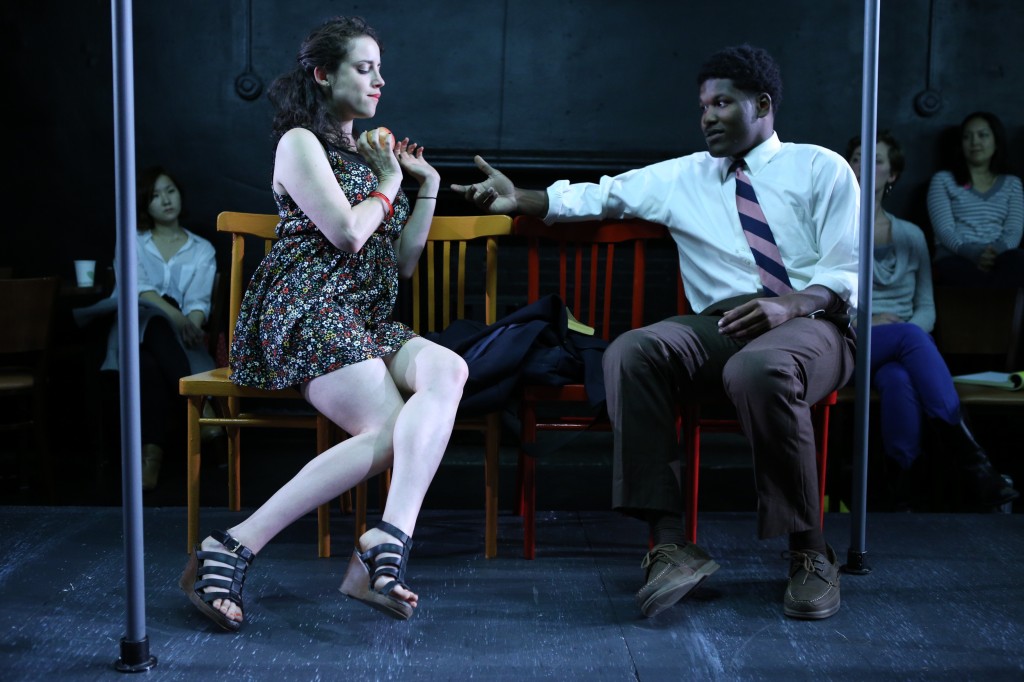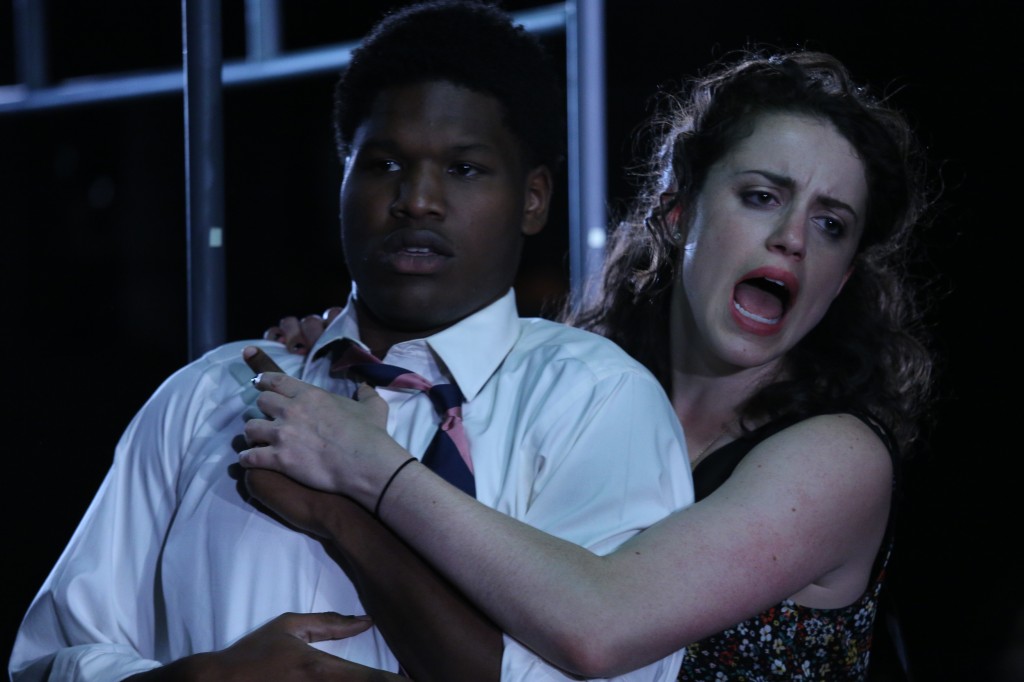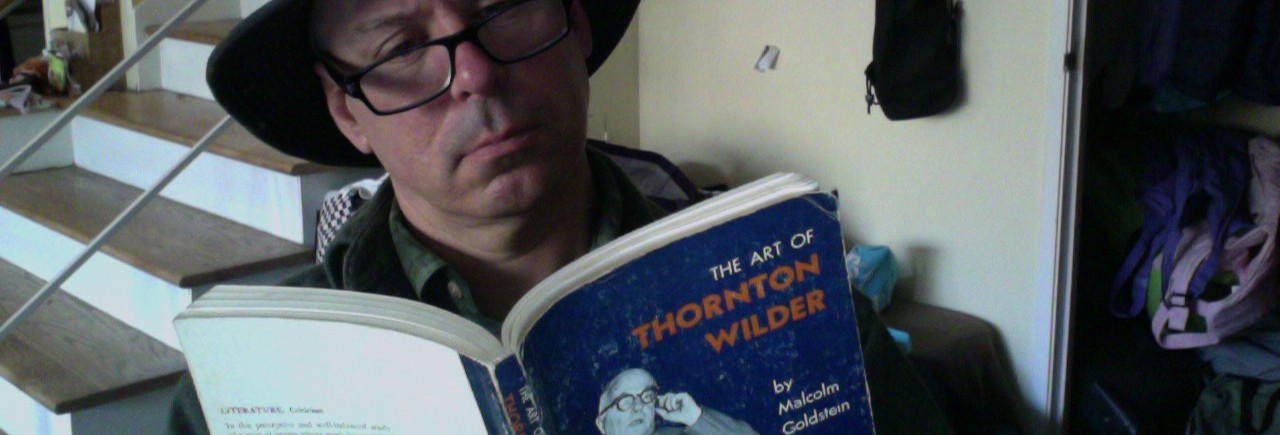
Dutchman
Through September 28 at the Yale Repertory Theatre, 217 Park Street, New Haven.
By Amiri Baraka (LeRoi Jones). Directed by Katherine McGerr. Produced by Caitie Hannon and Charles J. Felix. Scenic Designer: Adrian Martinez Frausto. Costume Designer: KJ Kim. Lighting Designer: Joey Moro. Sound Designer: Joel Abbott. Dramaturgs: Jennifer Schmidt and Sarah Krasnow. Technical Director: Emily Erdman. Stage Manager: Rob Chikar. Creative Consultant: Yahya Abdul-Mateen II.
Dutchman is a bonafide American classic. Along with Edward Albee’s Zoo Story (1958) and Israel Horowitz’s Line (1967), it’s one of those one-acts that helped define the Off Broadway movement. Those same plays were later embraced by college theaters and small theaters which appreciated the scripts’ economy and flexibility and irresistible action scenes for hyperphysicalized, up-close-in-the-room actors.
But Zoo Story got tamed, paired with a related one-act and presented by large regional theaters. Line never stopped running in New York, which is where much of its identity remains.
Dutchman, however—as the slickly produced yet rawly performed rendition now at the Yale Cabaret proves—continues to provoke, and cut deep. Consider this: The Cabaret has added a consciousness-raising curtain-raiser to the show, a two-person script-in-hand recitation of Suzan-Lori Parks’ mid-‘90s query “New Black Math,” performed by first-year Yale School of Drama acting student Chalia Ayers LaTour and first-year playwriting student Jireh Holder. (You can find Parks’ invigorating text here.) Apparently, Dutchman is still the sort of play we need to prepare ourselves carefully for. It assaults the senses, especially senses of decorum and community.
Dutchman has a frantic need-to-end-the-play ending (similar to Zoo Story’s; Albee, by the way, co-produced Dutchman’s 1964 world premiere), a short sharp shock that has been imitated so many times in the past 45 years that it has become a cliché. But in Katherine McGerr’s brisk, articulate, stylized production that’s not a problem at all. This show is angrily in the present tense, as good as the latest riposte or insult of analysis. McGerr does not dwell on the sexual and violent confrontations that Baraka regularly inserts to help physicalize the play. She lets the sound and lighting design underscore the tone she wants (flickering neon overhead lights; a heartbeat-throbbing railroad-track rumbling), then lets the performers roam freely.
McGerr wisely cares less about the stagey bits and more about the dialogue. So do the actors: As the button-down-shirted middle-class-looking subway commuter Clay Williams, Cornelius Davidson downplays his size and plays up an engrossing nervousness. As the African-American Clay’s white female challenger and seductress Lula, Carly Zien is not a decade older than her prey as is specified in Baraka’s script; she distinguishes her character in the other direction, making her girlish and unnervingly frisky. She leaps freely about the subway car (suggested, in Adrian Martinez Frausto’s set design, through a framework of metal pipes encompassing plain old chairs.) She shouts epithets and dances up a storm.

Granted, the play has been greatly altered to achieve this sense of intimate menace. Sure, the “Conductor” role, which has one line near the end, has been excised. That’s fine; subway cars don’t have conductors anymore. But also missing in an entire ensemble of onlookers who share the play’s subway car environs. It’s not enough to sit audience members close to the action; “the crowd” in the script is given stuff to do, and some members of that throng are defined characters, such as a blues-singing drunk man.) So the whole sense of a judgmental, or enabling or oblivious “society” surrounding the central two-person altercation is missing.
Or is it? It’s possible that Amiri Baraka might have stacked the deck when writing the crowd reaction he sought right into Dutchman’s denouement. Race relations and urban survival have changed enough in the past half-century that apathy and misunderstanding and obliviousness are no longer an appropriate punchline for this politically charged play. Confusion and distaste and anxiety and allowances for cultural identity-shaping and post-feminist theories all play into modern responses to this still-visceral play. Dutchman still has the power to offend, upend, inflame… and, not incidentally, to entertain. This subway thriller gets you where you need to go.
